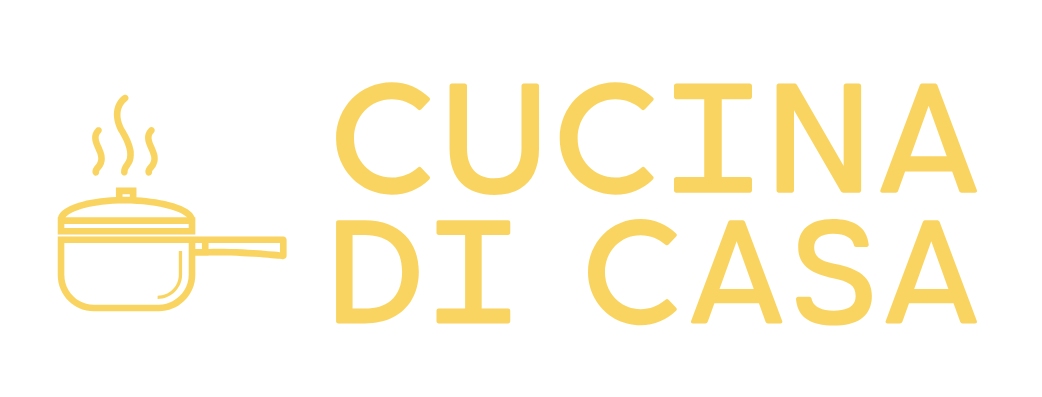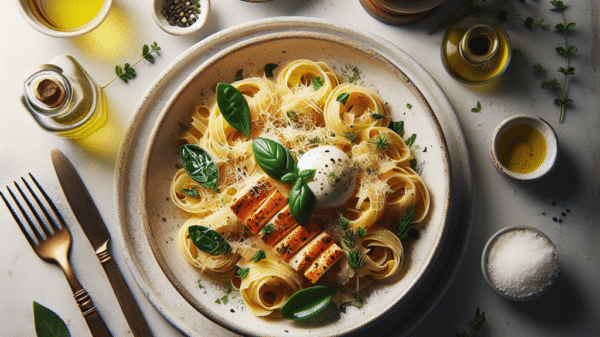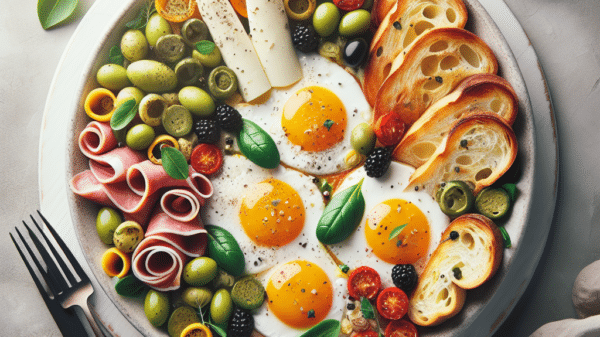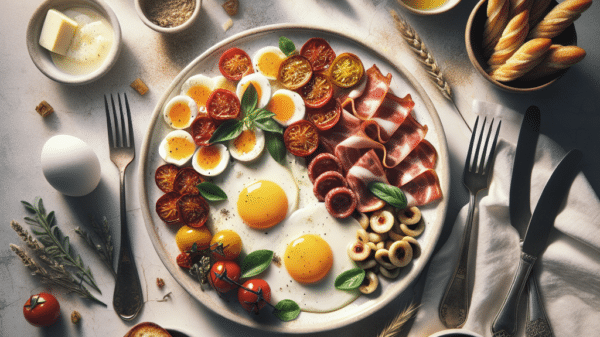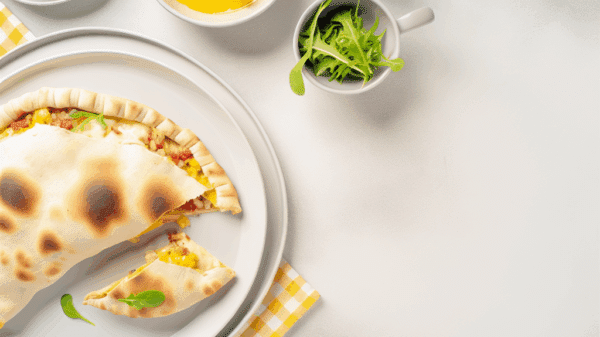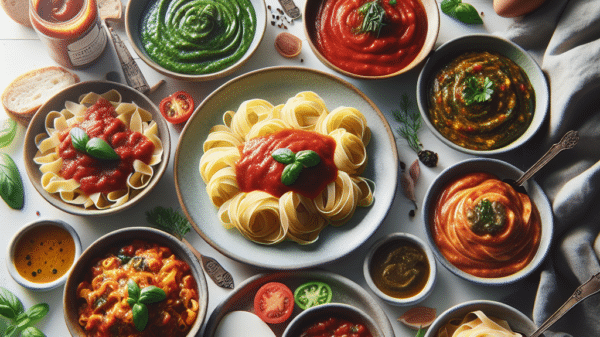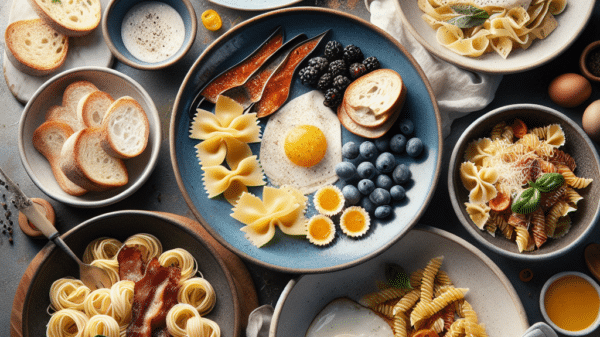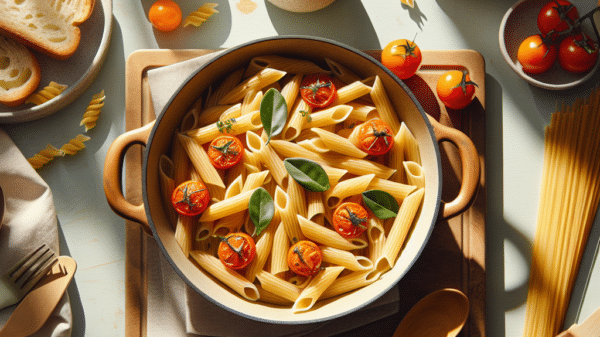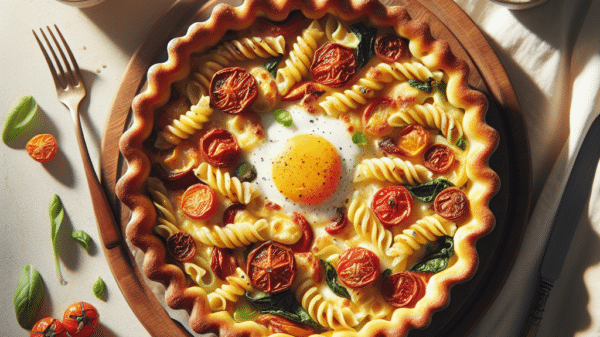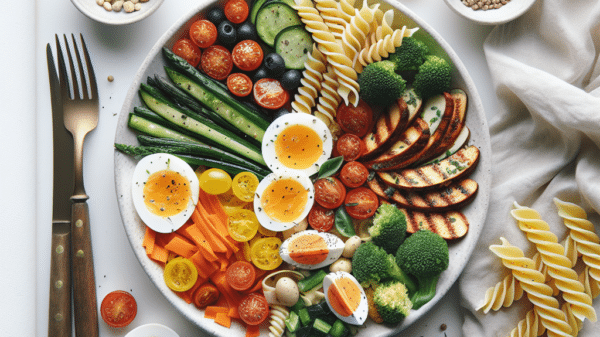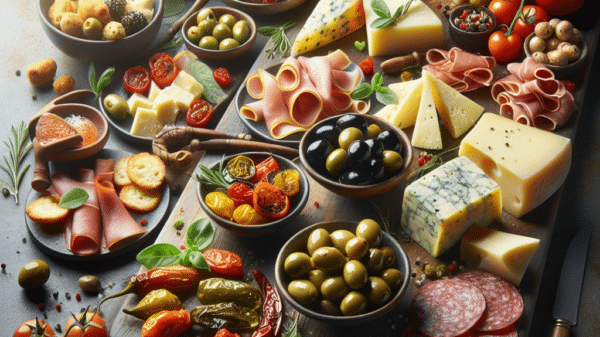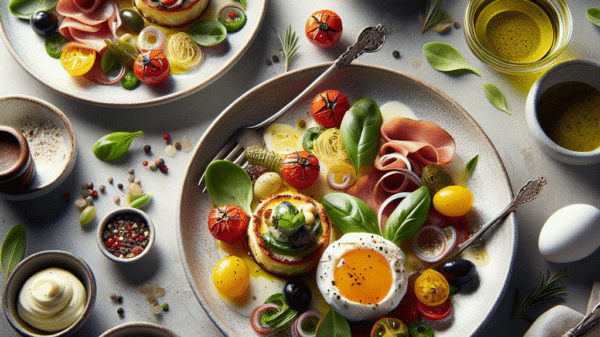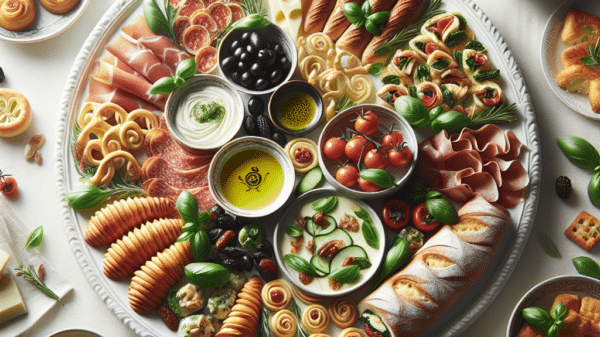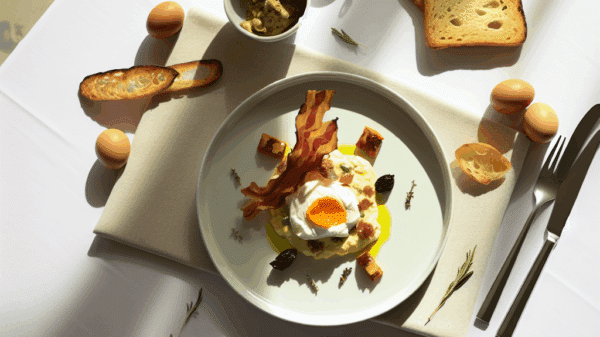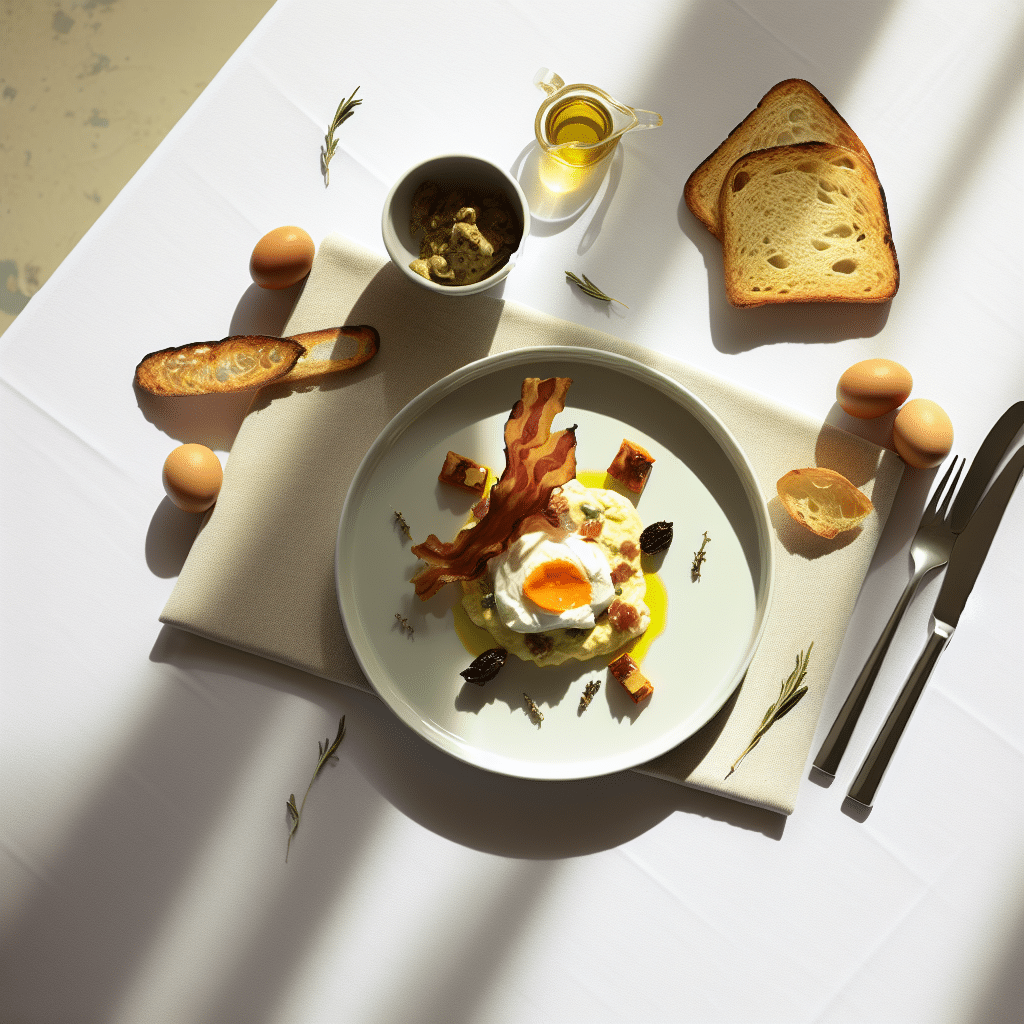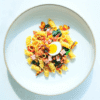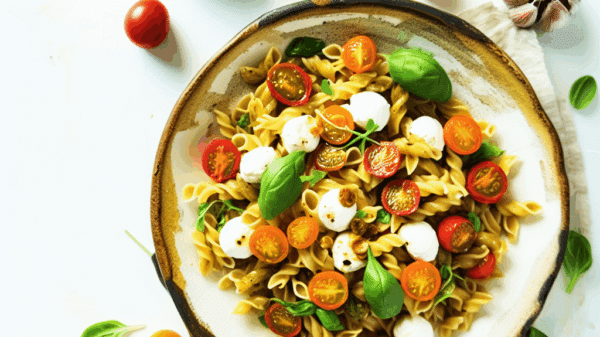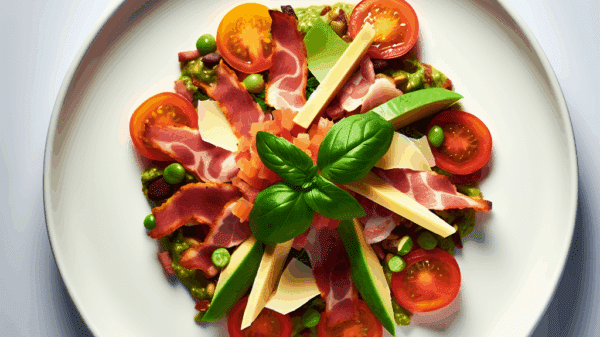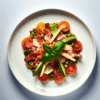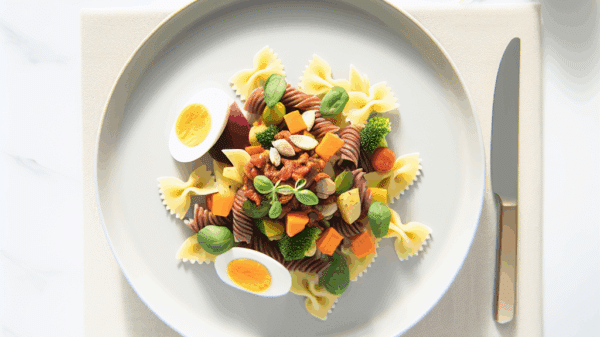Overview
Tuscan cuisine embodies the heart of rustic Italian cooking, renowned for its simplicity, bold flavors, and a focus on high-quality ingredients. Perfect for food lovers who appreciate authentic flavors and those wishing to explore new culinary landscapes, this cuisine offers a delightful escape into the Italian countryside.
Estimated Prep Time: 30 minutes
Estimated Cook Time: 1 hour
Difficulty: Intermediate
Regional Origin: Tuscany
Ingredients
- 400 grams (14 oz) of traditionally made pici pasta (or spaghetti)
- 100 grams (3.5 oz) of guanciale or pancetta, diced
- 200 grams (7 oz) of San Marzano tomatoes, crushed
- 2 cloves of garlic, minced
- 50 ml (1.7 oz) of extra-virgin olive oil
- Salt to taste
- Freshly ground black pepper to taste
- Red pepper flakes (optional, for heat)
- Fresh basil leaves for garnish
- 50 grams (1.8 oz) of Parmigiano-Reggiano, grated (for serving)
Step-by-Step Instructions
- Prepare the Water: In a large pot, bring salted water to a boil. This is crucial for flavoring the pasta. Ensure the water is seasoned well, using roughly 1 tablespoon of salt per liter (4 cups) of water.
- Cook the Pasta: Add the pici pasta (or spaghetti) to the boiling water. Cook until al dente, approximately 8-10 minutes. Ensure to reserve about a cup of pasta water before draining.
- Sauté the Guanciale: In a separate pan, heat the extra-virgin olive oil over medium heat. Add the diced guanciale or pancetta and cook until crispy, about 4-5 minutes. Avoid high heat as it can burn the meat quickly. Look for a deep golden-brown color.
- Add Garlic: Incorporate the minced garlic into the pan with the guanciale. Cook until fragrant, about 1 minute. Watch it closely to prevent burning, which can create bitterness.
- Simmer with Tomatoes: Pour in the crushed San Marzano tomatoes and a pinch of salt. Simmer for about 15-20 minutes until the sauce thickens. Stir occasionally and taste for seasoning, adjusting as needed. A well-balanced sauce is key.
- Combine: Once the pasta is cooked, add it directly into the sauce, along with a splash of the reserved pasta water. Toss everything together over low heat for a couple of minutes until the pasta is well-coated. This starchy water helps to bind the sauce.
- Finish & Serve: Season with freshly ground black pepper and, if desired, red pepper flakes for a kick. Divide into bowls, garnish with fresh basil, and dust with grated Parmigiano-Reggiano. Serve immediately and enjoy the blend of authentic Tuscan flavors.
Variations & Substitutions
If you need dietary adjustments or wish to explore different flavor profiles, consider the following:
- Vegan: Replace the guanciale with sautéed mushrooms or smoked tempeh for depth of flavor and texture. Use nutritional yeast as a substitute for cheese.
- Dairy-Free: Skip the cheese or use a dairy-free alternative. For creaminess, blend soaked cashews with nutritional yeast and lemon juice.
- Gluten-Free: Use gluten-free pasta varieties and ensure any additional ingredients (like stock or sauces) are also gluten-free.
- Regional Twist: Add Tuscan kale or Swiss chard for a hearty addition to your dish, common in local kitchens.
Make Ahead, Storage & Reheating
This dish is suitable for meal prep. You can store the pasta and sauce separately in airtight containers in the refrigerator for up to 3 days. The flavors often deepen when left overnight.
To reheat, add a small amount of water in a pot and warm on low heat to maintain consistency. You may need to add extra seasoning to revive the flavors. If using a microwave, stir well to avoid hot spots.
For longer storage, freeze the sauce in portions for up to 3 months, then simply reheat and cook fresh pasta when ready to serve.
Nutrition (Approx.)
Calories per serving: 450 kcal
Total Fat: 18g
Carbohydrates: 50g
Protein: 12g
Fiber: 3g
(Note: Values may vary based on specific ingredients used)
Serving Suggestions
Pair your Tuscan pasta with a fresh arugula salad dressed in lemon and olive oil for a refreshing contrast. For an added touch, serve with some bruschetta topped with ripe tomatoes and basil.
When it comes to beverages, a Chianti or any well-structured red wine complements the rich tomato and meaty notes splendidly. For a kid-friendly alternative, serve with a sparkling water infused with a splash of lemon.
FAQs
- Can I use other types of pasta? Yes! While pici is traditional, you can substitute with spaghetti or linguine.
- Is guanciale necessary? While it’s distinctive, pancetta or even bacon can work; just be aware of flavor differences.
- What if I can’t find San Marzano tomatoes? Look for high-quality canned tomatoes; they are a good alternative but ensure they are sweet and not overly acidic.
- How can I enhance the flavors further? Consider adding a splash of white wine while the sauce simmers for added complexity.
- Can I prepare this dish in advance? Yes! The sauce can be made ahead and stored in the fridge or freezer for future use.
Conclusion
In summary, Tuscan cuisine is a celebration of fresh, high-quality ingredients brought together with love and care. With just a few staple components, you can recreate a dish that will transport you to the sun-kissed hills of Tuscany. Remember, the key is in the quality of your ingredients and your willingness to engage in the process of cooking.
So gather your friends and family, prepare this delightful Tuscan dish, and take one more step into the rich tapestry of Italian culinary traditions.
